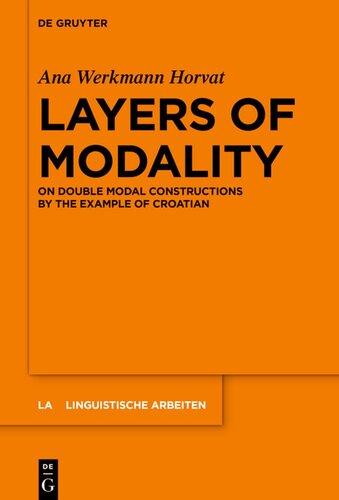

Most ebook files are in PDF format, so you can easily read them using various software such as Foxit Reader or directly on the Google Chrome browser.
Some ebook files are released by publishers in other formats such as .awz, .mobi, .epub, .fb2, etc. You may need to install specific software to read these formats on mobile/PC, such as Calibre.
Please read the tutorial at this link: https://ebookbell.com/faq
We offer FREE conversion to the popular formats you request; however, this may take some time. Therefore, right after payment, please email us, and we will try to provide the service as quickly as possible.
For some exceptional file formats or broken links (if any), please refrain from opening any disputes. Instead, email us first, and we will try to assist within a maximum of 6 hours.
EbookBell Team

4.3
98 reviewsMuch of the literature on modality focuses, at least implicitly, on the occurrence of single modal auxiliaries. However, cross-linguistically, modal auxiliaries can co-occur with one another, but under interesting restrictions. This monograph examines layered modal constructions and the semantic restrictions under which they combine.
The main puzzle addressed in the book is the question of ordering restrictions among modal auxiliaries and whether these have any semantic consequences, and finally, what the conceptual rationale is behind these restrictions. Based on the data from Croatian, the central proposal is that modal restrictions depend heavily on both modal force and flavour, and combine according to a hierarchy that can possibly be extended cross-linguistically since it rests on the basis of the conceptual and logical reality of human language.
The book also offers an in-depth overview of the literature on layered modal constructions as well as a valuable and extensive set of analyzed data which will be of great interest for researchers interested in verbal systems, modality, and Slavic languages.